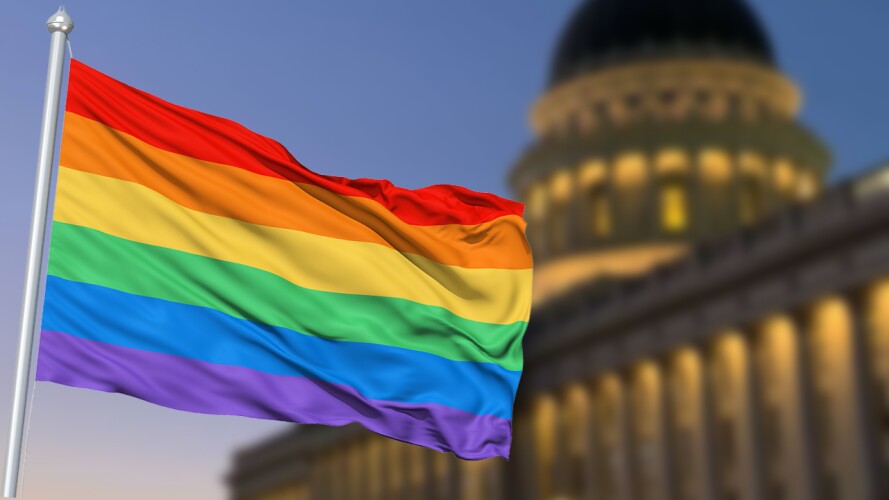SALT LAKE CITY — Lawmakers signaled they may be considering a repeal of Utah's ban on LGBTQ conversion therapy.
Members of the Utah State Legislature's Administrative Rules Review and Government Oversight Committee discussed whether the current rule is constitutional and the agency tasked with implementing the ban had the power to do so. FOX 13 News first reported on Wednesday the committee was revisiting the ban.
"I have been contacted by numerous therapists, numerous people who have children that need to go to therapy," said Rep. Brady Brammer, R-Highland. "And they’re worried because they say 'I don’t know where the lines are. I don’t know what I can and can’t say.'"
Repealing the ban would ignite a political fight that began in 2019 when the legislature introduced a bill to ban conversion therapy, a discredited practice that attempts to change someone's sexual orientation or gender identity. The bill was championed by LGBTQ rights groups and had political support, but failed to pass under pushback from social conservatives on Utah's Capitol Hill.
In 2020, then-Governor Gary Herbert pursued a ban through a process called an administrative rule. It has the same effect as a law.
"The process was public both before and after the filing and involved board meetings, a heavily attended rule hearing and many public comments," Mark Steinegal, the director of Utah's Division of Occupational and Professional Licensing, which regulates therapists, testified on Thursday.
But some lawmakers on the committee questioned if DOPL has the power to enact the rule and whether the ban itself violates free speech rights. They cited conflicting case law in other states.
"I agree DOPL is permitted to regulate professional conduct. Is this conduct or speech in DOPL's opinion?" asked Rep. Brammer.
"This is one of the core issues we’re discussing with our attorneys, where is the boundary with speech and conduct is," Steinegal replied.
Critics of the rule testified on Thursday that therapists have been "scared" and accused the rule of being one-sided on discussing changing someone's identity or orientation.
"Though the rules appear to be neutral to religion on their face, in their practical operation they presuppose the illegitimacy of religious beliefs that reject transgender ideology and reject medical transgender change procedures or that hold that same-sex behaviors have moral negative causes," said Geoffrey Heath of the Family Development Action Coalition.
The LGBTQ rights group Equality Utah argued to the committee that the law is constitutional and protects children from abuses. In the past, people who have undergone conversion therapy have said they were subjected to electric shock and aversion therapies. What is known as "talk therapy" on the subject continues to harm LGBTQ youth, said Equality Utah's policy director, Marina Lowe.
"Pretty much every major medical organization in the nation, including the Utah Psychological Association, opposes conversion therapy," she said. "Precisely because of the damaging harm that results from this practice to young people including depression, substance abuse and suicide."
The committee took no formal action on Thursday. Sen. Jake Anderegg, R-Lehi, questioned if they even could. He told his colleagues on the committee he agreed with a majority of the existing ban that's in place, but acknowledged some concerns about discussing orientation and identity.
But he said if they advanced a bill in the 2023 legislative session it must be better than the existing rule.
"If we do a full-fledged repeal without having something better to replace, I'm not sure we’re equally balancing the policy for those who have the belief on the one side versus the belief on the other," Sen. Anderegg said.
Equality Utah said in a statement after the meeting it would "vehemently oppose any efforts to resuscitate this dangerous and ineffective treatment for Utah youth."
Governor Spencer Cox told reporters at his monthly news conference on Thursday he continued to support the rule that is in place and would engage with lawmakers should they attempt to repeal it.
"We know that historic practices around conversion therapy have been incredibly damaging and there’s plenty of research on that issue," he said.




